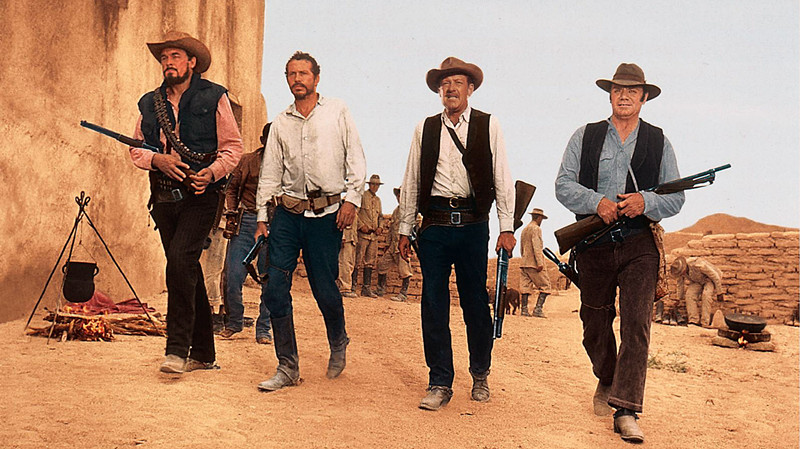
This is a film list about wimping out. We all think we are moral and we all feel confident about meeting moral crises head-on. We like to think we have the right stuff when it comes to taking a stand and making the right choices. What causes a person, however, to wimp out?
Some of the most affecting of American/English films provide moral parables about moral courage through the process of the via negativa or ‘negative way’ – you discover what courage is by watching others wimp out and examining their motives and fears. You discover how potent the factors toward wimping out are and marvel at the fact that there are some heroes who simply do not do this.
Below is a list of 20 classic American/English films in which wimping out is essential to the plot and can lend insight into why people act this way.
1. On the Waterfront (1954)
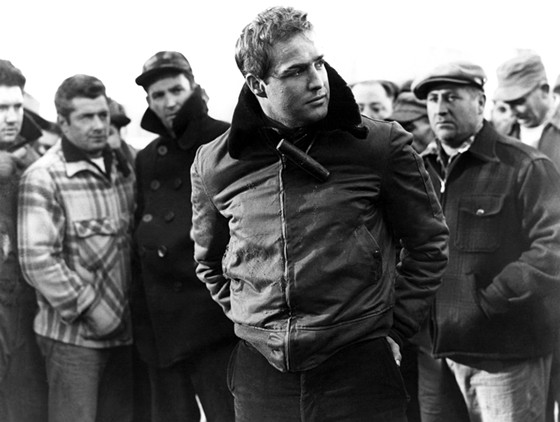
I understand. You could have had class. You could have been a contender. You could have been somebody. But, let’s face it, you’re a bum. Well, I hate to say it, Terry, but 1) this is what you get when you listen to what your older brother tells you to do and 2) yeah, you could have taken Wilson apart. You didn’t. It wasn’t your night because you wimped out and went along with your brother’s plan for the easy money instead of the lasting glory.
Yeah, Wilson fought at a ballpark and you took a one-way trip to Palookaville. You coulda said, “Charley, it is my night. You got 20 minutes to change your friggin’ bets. I’m not throwing this fight. Not for you, not for anyone.” But you didn’t. Why’d ya take that dive Terry? You knew what your brother was doing to you. Did I mention Palookaville?
Type of wimp: classic myopic.
Dual lessons to be learned: delay your gratification and play for the big payday/don’t let personal relationships or loyalties turn you into a wimp.
2. Caine Mutiny (1954)
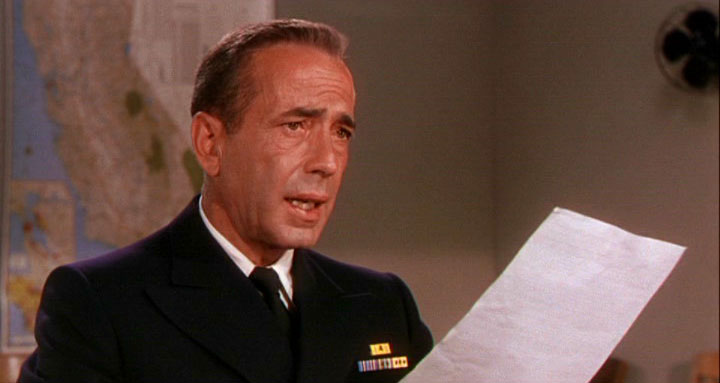
Yeah, there’s something wrong with Captain Queeg. Frankly, he’s off his rocker. Remember the stolen strawberries and the massive hunt for the suspected key? No doubt about it, when the typhoon hit it was a matter of everyone’s survival to get Queeg out of there.
All you have to do now is rely on the big-city, shyster lawyer who got drafted into the Navy to save your keisters…that is, unless a rat like Keefer wimps out while giving his testimony and puts the blame on you guys instead of Queeg to save his own keister.
Yep, as lawyer Barney Greenwald says (winning the case despite Keefer’s testimony), folks of integrity can get slandered and ostracized, but the Keefers of the world will publish their novels, make a million bucks, marry big movie stars, and for the rest of their lives will live with their consciences, if they have any. Here’s to the real author of “The Caine Mutiny”…here’s to you, Mr. Keefer.
Type of wimp: meteorological (which way is the wind blowing?)
Lesson to be learned: When you take a moral stand, you can be sure others will stab you in the back, while protecting their own reputations.
3. Night of the Living Dead (1968)
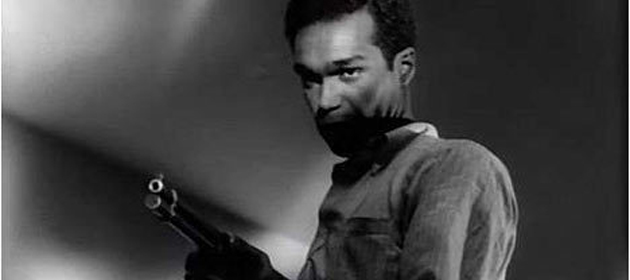
Well, you know, it sounded as if a woman might have been screaming…Mr. Cooper couldn’t tell for sure though. And furthermore, he’s a family man. He’s got a wife and a kid. Just what the hell was he supposed to do anyway? Damn right the cellar is the safest place!
And as for slamming the door on Ben, well, come on, accidents happen. Mr. Cooper seems to be in a perpetual wimping stage during this film. His every move seems geared toward his own personal survival and every one of his excuses is meant to conceal this fact.
Type of wimp: gut survival.
Lesson to be learned: it’s OK to be scared, but try to do something.
4. Deliverance (1972)
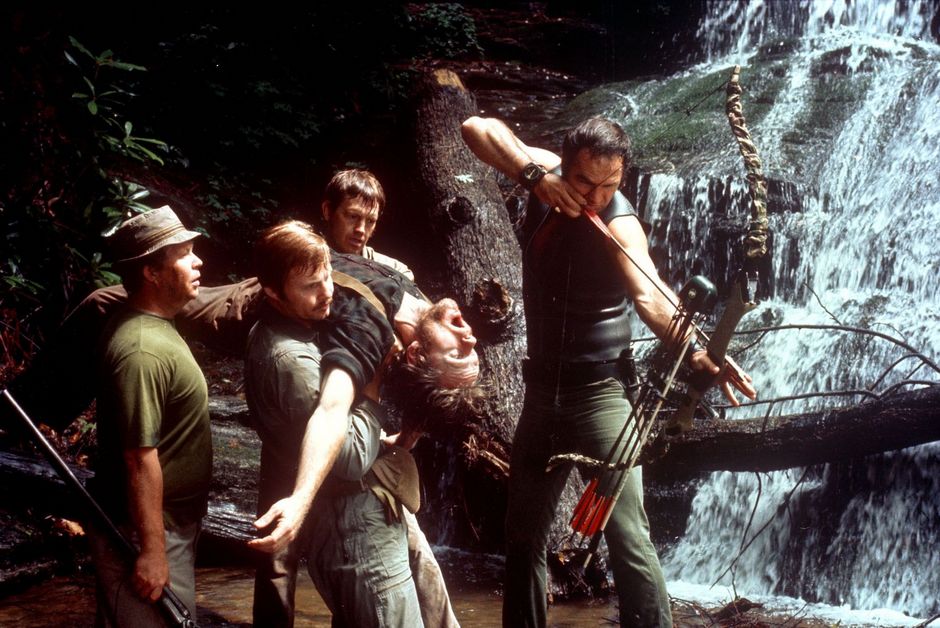
Did he really have to squeal like a pig and submit so easily to the hillbilly? Couldn’t he have just danced naked for the guy and drawn the line at squealing? So Bobby wimps out and does not fight back when he is anally raped by the hill folks. He bends over and not only takes it, but degrades himself thoroughly in the process. Did he have a choice? Ha.
Deliverance is, however, a type of allegory: Bobby, Drew and Lew seem to represent aspects of Ed, so we have symbolism in this anal rape and in Bobby’s inability to resist. Yet, looking at the film on a literal level, it was Ed who was next in line as the hillbillies seemed to truly appreciate the full, luscious lips he (Ed is played by Jon Voight) passed on to Angelina Jolie.
It looked as if Ed was going to be providing a service to the boys from the backwoods too, so who knows. Maybe in such a horrific situation you have to cave in and squeal.
Type of wimp: gut survival.
Lesson to be learned: sometimes you gotta squeal or die. Tough to make that call.
5. Mister Roberts (1955)
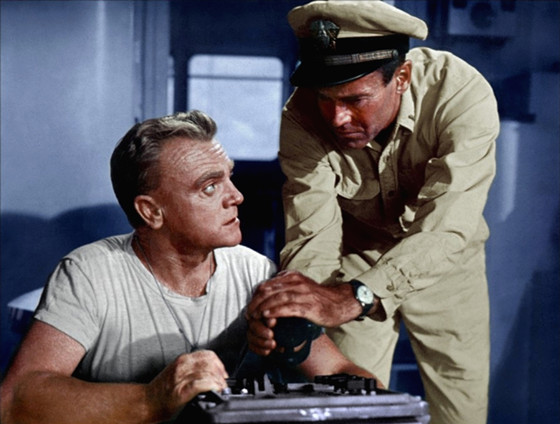
Ensign Pulver is fed up with Captain Morton and is going to tell him off –big time – some day. When, he’s not sure. He’s waiting for the right time. Actually, no he’s not; he chronically wimps out every time he has the chance to tell Morton off. Finally the loss of his best friend in the war motivates him to action.
Too late Pulver. That type of precipitous action doesn’t impress anyone. But Jack Lemon won an Oscar for perfectly embodying the ambivalent Pulver. This film was huge in the 50s and also starred Henry Fonda while being directed by John Ford.
Type of wimp: spineless.
Lesson to be learned: precipitous, emotionally motivated action does not count. Spines count.
6. Eight Men Out (1988)
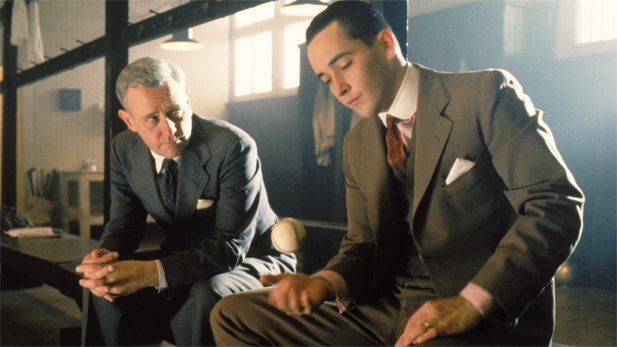
Does perceived mistreatment give license to morally wimping out? The Chicago White Sox of 1919 thought so. They had a professional duty to play their best and they had a responsibility to their fans. But their sense of mistreatment and financial exploitation led them to deliberately throw important World Series games to cash in.
Does choosing to wimp out equal wimping out? I would argue yes. They failed to meet a moral and professional standard. That’s wimping.
Type of wimp: greedy bastard.
Lesson to be learned: you don’t have the right to be a wimp.
7. High Noon (1952)
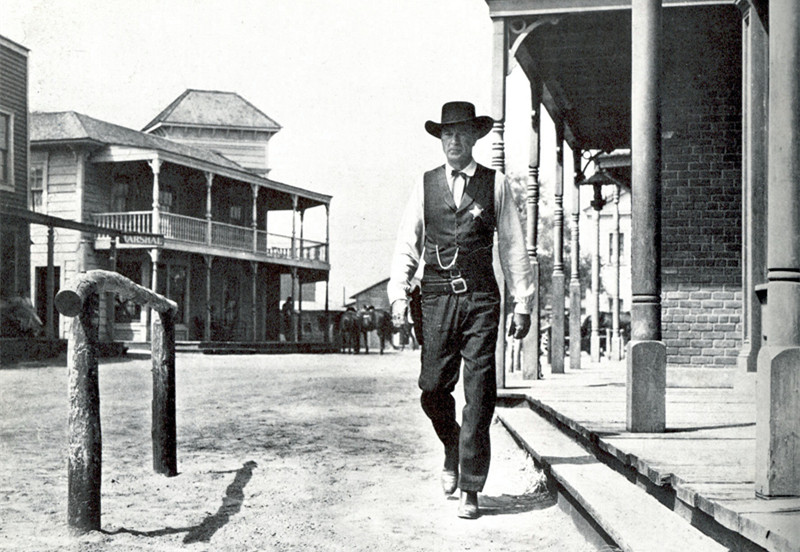
Yes, this is a film full of wimps. I guess I would nominate Harvey Pell (Lloyd Bridges) as the top wimp however. He was the deputy. It was his job to stand up to the Miller brothers with Kane. Pell was smarting, however, from being passed up for the Marshall’s job himself and just refused to help. His excuse was that, technically, Kane was no longer the Marshall and that he (Pell) had not received any legitimate orders to confront the Millers. Ha. Maybe you can’t blame the town that much.
As the preacher said, they paid good money for law enforcement – yet, this seems to point to a significant flaw with American democracy. ‘We the people’ don’t participate as much as we should in governance; we pay for people to do the dirty work. So let’s call the people of this town wimps too.
Type of wimp (Pell): passive/aggressive snot-nosed punk.
Lesson to be learned: get over it and help the guy!
8. Friendly Persuasion (1956)
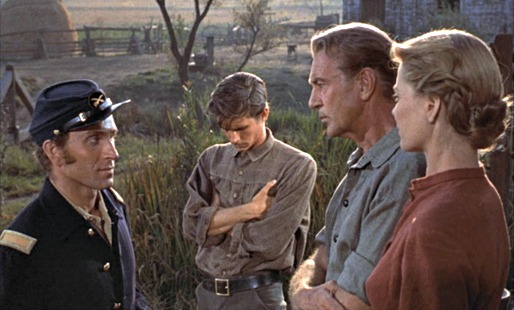
This is a film about a Quaker family during the time of the Civil War. Jess Birdwell (Gary Cooper) and Josh Birdwell (Anthony Perkins) are challenged to decide whether they will take the Quaker hardline against violence and war or whether they will fight in a battle against the South to help realize one of their social goals – the equality of all people.
After much hand-wringing, both guys fight and kill a bunch of rebs. Yes, they were wimps. You have moral principles? Then stick with them or you’re like some kind of animal. There are some historians who feel that Lincoln wimped out by not exploring peaceful solutions to eliminating slavery and after the war there was no equality for the black folks who had been forced into slavery. They went from powerless slaves to powerless and dirt poor share croppers.
So the Quakers were right – not fighting was the way to go. 600,000 men died in this war – half of the total number of all US soldiers who ever died in wars. By the way, what was up with the Gary Cooper/Quaker connection? Sergeant York, High Noon, Friendly Persuasion…he had the market on Quaker stuff in Hollywood.
Type of wimp: hypocritical.
Lesson to be learned: stick with your damn principles.
9. The Man Who Shot Liberty Valance (1962)
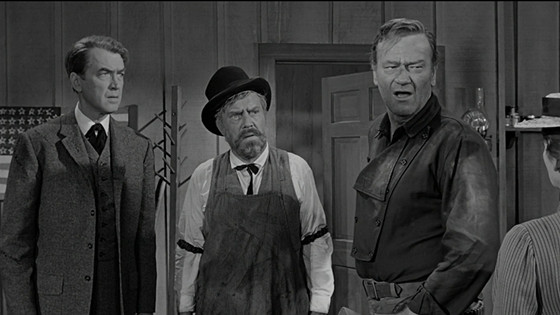
So how can I call Ransom Stoddard (Jimmy Stewart) a wimp? After all, he went out to face Liberty Valance believing he was going to die. Fine. Kudos. Then why did Tom Doniphon (John Wayne) die penniless, buried in a cheap coffin with boots that were coming apart? Because Stoddard didn’t have the guts to tell the truth. He knew Doniphon pulled his fat out of the fire, but he kept his mouth shut and rode his fame all the way to the US Senate. And he got the girl.
I could cry thinking about the character of Tom Doniphon protecting this naïve, glory-hound lawyer knowing that, ultimately, he (Doniphon) was going to get the wrong end of the stick.
Type of wimp: glory hound.
Lesson to be learned: be humble, give credit where it’s due or sometimes it’s easier to face a bullet than turn down the temptation of fame.
10. The Wild Bunch (1969)
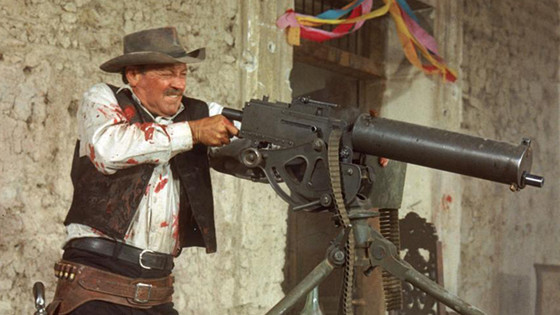
So Generalissimo Mapache knows that Angel has taken a box of guns and ammo from the shipment that Mapache bought from the bunch. Hell, he probably knows that the bunch knows he did it. Those guns and ammo will be used by Angel’s village to protect themselves from Mapache the next time he tries to raid them for food and whatever else he wants.
So when Angel and Dutch come by with the last batch of weapons in exchange for the last batch of gold, Mapache seizes Angel with the intent of torturing him to death. Even though Angel had previously saved Dutch’s life, Dutch does not utter one word of protest. Indeed, he leaves Angel with Mapache and even calls Angel a thief.
Angel is then brutally and degradingly tortured. The final sequence when the bunch comes back to re-claim Angel is too little, too late. Angel is a shadow of what he used to be and Mapache casually slits his throat before the final carnage ensues.
Type of wimp: gut survival.
Lesson to be learned: stick up for the guys in your bunch, regardless of consequences, or you are like some kind of animal.